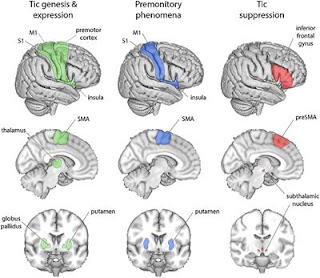Tourette syndrome (TS) is a neurological disorder characterized by repetitive, involuntary movements and vocalizations known as tics. It typically starts in childhood and can have a significant impact on daily life, including social and academic functioning.
The exact cause of TS is unknown, but it is believed to involve a combination of genetic and environmental factors. It is estimated that around 1 in 100 people worldwide have TS, with males being affected more often than females.
The most common tics associated with TS are motor tics, such as eye blinking, facial grimacing, shoulder shrugging, and head jerking. Vocal tics can include throat clearing, grunting, coughing, and shouting out words or phrases (known as coprolalia). These tics can vary in frequency, intensity, and duration, and can change over time.
In addition to tics, people with TS may experience other neurological symptoms, such as obsessive-compulsive behaviors, attention deficit hyperactivity disorder (ADHD), and learning disabilities. Anxiety and depression are also common among people with TS, and can be exacerbated by social stigma and misunderstanding of the disorder.
Diagnosing TS involves a thorough medical evaluation, including a physical exam, neurological exam, and assessment of symptoms. There is no specific test for TS, and the diagnosis is made based on the presence of both motor and vocal tics that have been present for at least one year, with onset before the age of 18.
There is currently no cure for TS, but treatment can help manage symptoms and improve quality of life. The most effective treatments for tics are behavioral therapy and medication. Behavioral therapy, such as habit reversal training, can help people with TS learn to recognize triggers for their tics and develop strategies to control or reduce them. Medications such as antipsychotics and alpha-adrenergic agonists can also be effective in reducing tics, but can have side effects.
Living with TS can be challenging, and support from family, friends, and healthcare professionals is important. Educating others about the disorder and promoting awareness and understanding can also help reduce stigma and improve social acceptance for people with TS.
In summary, Tourette syndrome is a neurological disorder characterized by repetitive, involuntary movements and vocalizations known as tics. It is believed to involve a combination of genetic and environmental factors and can have a significant impact on daily life. While there is no cure for TS, treatment can help manage symptoms and improve quality of life. Support from family, friends, and healthcare professionals, as well as education and awareness, are important for those living with TS.
